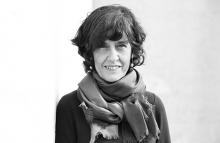Person-centred care model for the frail, institutionalised elderly person
There is a widespread tendency to think that the elderly population is a relatively homogeneous population because it mainly falls within a generation.
This initially led to planning poorly differentiated care for the elderly treated in different resources. However, the scientific community has been quick to show people with very different needs and expectations.
This fact has also gained strength in recent years by surprising us with the huge percentage of people who need specialised care due to presenting cognitive impairment, with dementia being main cause. Dementia, which at different stages needs different care strategies, which together with people's diversity by culture, biography and social and family support make us completely rethink the provision of care and the knowledge and skills of the people who provide it.
These models should be oriented not only to respond to needs that have been identified, but should aim at bringing people into the definition and implementation of their care plans, taking into account the strengthening of the skills that they still have.
Professionals
Other Professionals
- Maria Isabel Genua Goena
- Maria José Gárate Olazábal
- Izaskun Iturrioz Arrechea
- Gabriela Mondragón Olán
- Marta Idiaquez Miramón
- Ana Olaizola Pildain
- Ane Gurruchaga Elicegui
- Begoña Salaberria Trecu
- Laura Aguirregomezcorta Madinabeitia
- Idoia Larrumbide Simón
- Josefa Rollán Sánchez
- Marian Costa Casco
- Maitane Gaztañaga
- Javier Quintas
- Eli Abad
- Esther Rivas
- Celia Atienza
- Silvia Marcos
- Idoia Cano
- Ana Belén Egaña
- Virginia Hernández
- Rosa Ibargúren
- Izaskun Cuartango Acha
- Elena Urdaneta Artola

